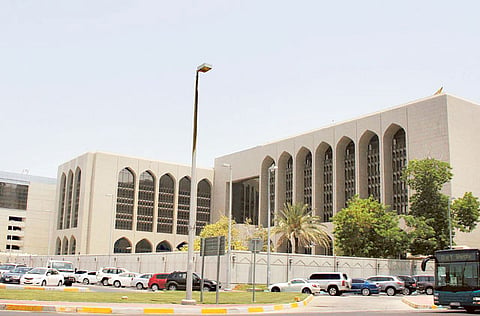UAE hits harder against money laundering with Dh339m in recent fines
Crackdown intensifies as UAE Central Bank hikes penalties on violators, expands oversight

Dubai: The UAE is ramping up efforts to combat money laundering and terrorism financing with a string of high-value penalties issued in recent months — totaling over Dh339 million — against both local exchange houses, foreign bank branches, and insurance companies operating in the country.
In the latest action, the Central Bank of the UAE (CBUAE) on Tuesday imposed Dh12.3 million in fines on six exchange houses for breaching anti-money laundering (AML) regulations. The fines followed inspections that uncovered multiple violations, including failures to follow the country’s AML and counter-terrorism financing (CFT) framework.
This move comes just a week after the Central Bank slapped a Dh3.5 million fine on another exchange house for similar failures. Investigators cited significant lapses in the firm’s adherence to AML/CFT policies and procedures.
Crackdown intensifies
The crackdown intensified late last month with one exchange house fined Dh100 million, only days after another was hit with an even larger penalty of Dh200 million. In that case, the branch manager was personally fined Dh500,000 and permanently banned from working in any UAE-licensed financial institution.
Foreign banks haven’t been spared either. The Central Bank recently penalised two UAE branches of international banks with a combined Dh18.1 million in fines — one receiving Dh10.6 million, the other Dh7.5 million — for failing to meet AML/CFT compliance standards.
Across all these cases, regulators found a common thread: systemic weaknesses in how institutions monitored and reported suspicious transactions and verified the identities of clients and beneficiaries.
A wider net: Oversight beyond banks
The UAE’s crackdown is no longer limited to the banking sector either. Authorities are expanding their regulatory net to include sectors that have traditionally been outside the formal financial system but are at high risk for abuse — such as real estate, gold and jewellery trading, auditing, and corporate service providers.
To boost effectiveness, the UAE Ministry of Economy has teamed up with Dubai Police to tighten surveillance of suspicious transactions in these sectors. Their collaboration includes creating direct and secure data-sharing channels, especially for beneficial ownership details — essentially identifying the true individuals behind corporate structures and financial dealings.
Message to violators: No safe haven
With fines now reaching into the hundreds of millions and bans being enforced at the individual level, the message from UAE regulators is clear: there is zero tolerance for institutions that fail to protect the financial system from abuse.
As the UAE continues its efforts to meet global compliance standards and remain off international watchlists, businesses operating in high-risk sectors are now under increased pressure to upgrade their internal controls — or face steep penalties.
Sign up for the Daily Briefing
Get the latest news and updates straight to your inbox




